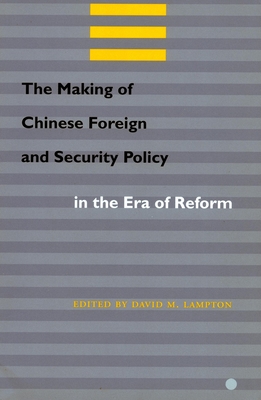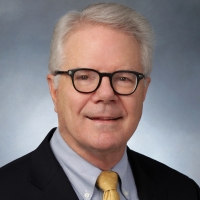

 Stanford University Press
Stanford University Press
The Making of Chinese Foreign and Security Policy in the Era of Reform


Key Metrics
- David M Lampton
- Stanford University Press
- Paperback
- 9780804740562
- 9.06 X 5.98 X 1.23 inches
- 1.56 pounds
- Political Science > International Relations - General
- English
 Secure Transaction
Secure TransactionBook Description
This volume provides a unique look at the changes in the way Chinese foreign and security policy is made during the reform era, and the implications of those changes for China's future behavior on the international stage. Bringing together the contributions of more than a dozen scholars who undertook extensive field research in the People's Republic of China, South Korea, and Taiwan, the book is the most comprehensive, in-depth, and rigorous account of how Chinese foreign and security policy is formulated and implemented.
Since the reform era began in the late 1970s, a new and ever-changing mix of forces has been reshaping Chinese foreign and national security policy-making institutions and processes. This volume examines those forces: bureaucratic politics and evolving organizations, changing elite views and skills, an altered domestic agenda, increasingly diverse social forces and public opinion, and the growing complexity of the international system itself, including globalization and multilateral regimes. The analysis goes one step further to look at specific foreign and security policy issues and relationships, including case studies dealing with Korea, Taiwan, the World Trade Organization, and arms control.
The volume addresses itself to policy-makers in both the public and private sectors, as well as scholars of China and international relations. It concludes that China's foreign and national security policy making, as well as its behavior abroad, is largely shaped by the forces of globalization, decentralization, pluralization, and professionalization. But the book also shows how the enduring power of Chinese decision makers and their national interest focus also mould China's behavior, notably in crises and in major strategic decisions. Looking to the future, the book suggests that the forces of change in the Chinese system offer the possibility, though not the certainty, that China may increasingly fit more comfortably into the international system in the years ahead, though not without frictions and mishaps.
Author Bio
David M. Lampton is Professor Emeritus and former Hyman Professor and Director of SAIS-China and China Studies at the Johns Hopkins School of Advanced International Studies, having also served as Dean of Faculty from 2004-2012.
Formerly President of the National Committee on United States-China Relations, he is the author of many books including, The Three Faces of Chinese Power: Might, Money, and Minds (University of California Press, 2008), with prior publications appearing in: Foreign Affairs, Foreign Policy,
The American Political Science Review, The China Quarterly, The New York Times, The Washington Post, and many other venues popular and academic in both the western world and in Chinese speaking societies. He received his BA, MA, and PhD degrees from Stanford University.
Dr. Lampton headed the China Studies programs at the American Enterprise Institute and at The Nixon Center (now The Center for National Interest), having previously worked at the National Academy of Sciences and having started his teaching career at Ohio State University. He has an honorary doctorate from the Russian Academy of Sciences’ Institute of Far Eastern Studies, is an Honorary Senior Fellow of the American Studies Institute of the Chinese Academy of Social Sciences, was the inaugural winner of the Scalapino Prize in July 2010 awarded by the National Bureau of Asian Research and the Woodrow Wilson International Center for Scholars, and is a Gilman Scholar at Johns Hopkins.
His newest book, Following the Leader: Ruling China, from Deng Xiaoping to Xi Jinping, will be published by University of California Press in January 2014. He consults with government, business, foundations, and is on the board of several non-governmental and educational organizations, including the Executive Committee of the National Committee on US-China Relations and Colorado College’s Board of Trustees. He was a fireman at Stanford University in his undergraduate days and was in the enlisted and officer ranks of the US Army Reserve.
Source: Johns Hopkins University School of Advanced International studies
Videos
No Videos
Community reviews
Write a ReviewNo Community reviews